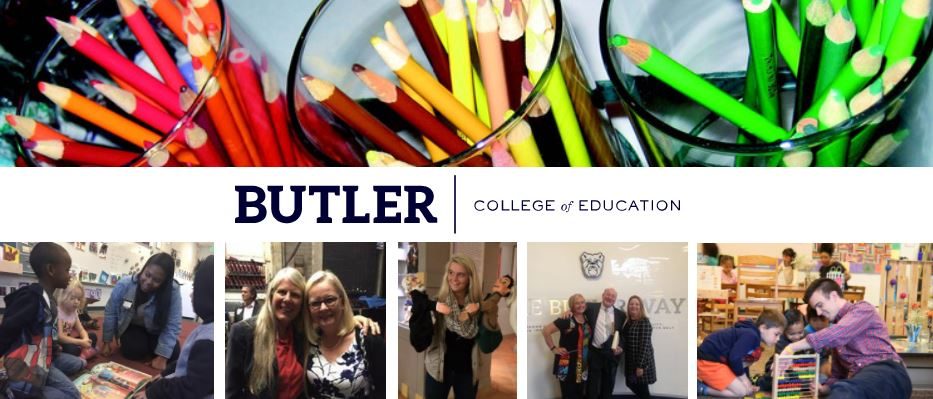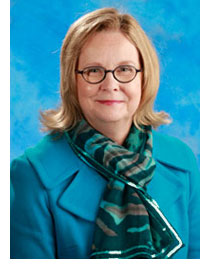The Many Ways to Tell Your Story
Last month I challenged you to join me in a New Year’s Resolution to tell a political leader about your positive, solution-focused experiences in education. It was part of my ongoing encouragement to “tell your story.”
This month I thought it was important to spotlight some of the unique storytelling and solution focused work going on within your College of Education. There are stories being told every day, as you know if you follow us on Facebook and Twitter, but the following highlight a few unique ways in which stories are shared.
Student Eric Day was positive and solution focused long before he ever came to Butler, and we soon recognized how his personal vision is fueling his desire to share his work in a broader way. Using Twitter as his storytelling format, Eric (@positivedayday) does a positive “shout out” to someone every day. When asked about his reason for this level of commitment, he shared:
“The reason I send out a positive shout out each day is to really show the world that not everything in life is negative. I truly hate when people complain about their own problems, because, if we all put our problems into a hat, we would pray to pull out our own. Also, the only disability in life is a negative attitude. Lastly, I feel as we need reflect the positive in all negatives.“
The interesting thing about reading Eric’s tweets is that it causes you to refocus your own mind on the people in your life that you are grateful for and what changes you are willing to make. Inspiring. So what are you willing to post on Facebook, Twitter, or other social media that might inspire someone today?
Sometimes stories are best told when we have the opportunity to listen carefully to the voices that most need to tell them. For example, student Shelbi Burnett recently joined several other amazing COE graduate and undergraduate students at the Indianapolis TEDx Youth Conference. After representing the COE at the event, Shelbi shared:
“When we invite students into the discourse on issues or events, we are bringing fresh eyes and a positive attitude to a situation—sometimes what adults consider to be experience can come with baggage. I will argue there is nothing else like the perspective of a student, and, when we begin to value that perspective openly in partnership with the student, we can engage them on a whole new level. What I saw and experienced at the TedX event was the physical realization of this ideal. Students had created a relevant event for their peers, their teachers, other adults, and for them to take part in a dialog together on the theme of balance. At the end of the day it reminded me that a balanced perspective is one that includes all views, and, when we include the perspective of a child as a learner at the heart of what we do, plan, or say in education, we can begin to make progress…”
Shelbi’s perspective about the value of the student voice is incredibly perceptive. We, as professional educators, can rightfully feel slighted when the conversation around education does not value the voice of the teacher. Yet we can model the value of all voices by offering students the chance to be a part of the process.
How can you highlight the student voice in stories that are shared?
Finally, staff member and school counseling student Maggie Power has been hard at work rethinking how we can share more stories in the COE on a daily basis. She has invested hours of work and collaboration with multiple departments to develop a new COE blog site that launches today!
The blog site is a place where we can celebrate the work of students, faculty, staff, and YOU—our alumni and friends of the college. We recognize that many of you are taking us up on our challenge to tell your story, so send us a short blurb and some pictures so that we can share your story as well.
Friends, there are so many ways to tell the stories of teaching, learning, and schools that others need to hear. Your challenge continues to be to find the best way to do the telling and to find the key person who needs to hear.
Until next month,

